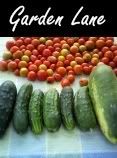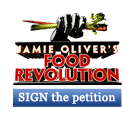 Preventing Cancer
Preventing Cancer
Thanks to my friend Anthony who sent me the link, (thank you, Anthony!) I finally have the answer I have been waiting/searching for. ('for which I have been waiting/searching' for the grammatical freaks out there) Anthony linked me up to the Diet and Cancer Report. Why is this what I have been waiting for? Since reading The China Study by Campbell last fall, I have been trying to find someway to verify his conclusions. If you aren't familiar with his study, his basic finding is a direct link between animal protein and cancer. His recommendation is to limit animal protein in your diet to 10% or less of your total dietary intake. I haven't found any credible source that would disprove his findings, but haven't found anything that would support it either. Until now...
last fall, I have been trying to find someway to verify his conclusions. If you aren't familiar with his study, his basic finding is a direct link between animal protein and cancer. His recommendation is to limit animal protein in your diet to 10% or less of your total dietary intake. I haven't found any credible source that would disprove his findings, but haven't found anything that would support it either. Until now...
In comes the report from this organization. The two main organizations behind this report are the World Cancer Research Fund and the American Institute for Cancer Research. But the WCRF has many organizations in countries around the world under its umbrella. The point being, that this is a credible source.
What they have put out is a report entitled "Food, Nutrition, Physical Activity, and the Prevention of Cancer: A Global Perspective." This report is the culmination of a five year study involving over 100 scientists from 30 countries. The content was "driven by an independent panel of 21 world renowned scientists." This is critical to know because if you have ever dealt with research, you can almost always find some research out there that will support the conclusion you want. This group was able to do what most of us can not do on our own - look at ALL the research available, compare the studies, sort out the conclusions, and determine final recommendations based on the whole body of science. On their website you can download the report and read it in full or download the summary.
Here are the eight general recommendations for preventing cancer:
1. Body Fatness
Be as lean as possible within the normal range of body weight.
-keep adult body mass index (BMI) between 21-23
2. Physical Activity
Be physically active as part of everyday life.
-start with 30 minutes moderate activity daily, working up to 60 minutes or more moderate or 30 minutes vigorous activity
3. Foods and Drinks That Promote Weight Gain
Limit consumption of energy-dense foods. Avoid sugary drinks.
- This one has quite a few clarifications: energy-dense foods are defined as having more than 225-275calories per 100g with a recommendation to get your food density down to about 125kcal per 100g; relatively unprocessed nuts and seeds, while energy-dense, are not considered to be of concern in promoting weight gain and provide valuable nutrients.
- sugary drinks also includes fruit juices which should be limited
- consume 'fast foods' sparingly, if at all
4. Plant Foods
Eat mostly foods of plant origin.
- eat at least five servings of non-starchy vegetables and fruits daily (remember anything with seeds is a fruit - tomato, cucumber, peppers, etc.); eat relatively unprocessed grains or legumes with every meal; limit refined starchy foods
"It is likely that there is further protective
benefit from consuming more than five portions/
servings of non-starchy vegetables and fruits."
5. Animal Foods
Limit intake of red meat and avoid processed meat.
- consume less than 18 oz/week of beef, pork, lamb, or goat and very little of it processed; processing is defined as meat preserved by smoking, curing or salting, or addition of chemical preservatives
Interestingly enough they emphasize that they are not recommending diets with no meat, or no foods of animal origin.
6. Alcoholic Drinks
Limit alcoholic drinks.
- if alcohol is consumed, limit consumption to no more than 2 drinks per day for men and 1 drink per day for women
They do say the following: "The evidence on cancer justifies a recommendation not to
drink alcoholic drinks. Other evidence shows that modest
amounts of alcoholic drinks are likely to reduce risk of coronary
heart disease." So, even though they are supposed to be reporting on how to reduce your risk of cancer, they don't come right out and say no alcohol even though by their own admission, the evidence justifies it. I'm shaking my head over that one.
In other words, if you prefer, you can keep drinking and know that you are likely to reduce your risk of coronary heart disease with that glass of wine or beer, but you are trading that risk for the opportunity to get cancer of the mouth, pharynx and larynx, oesophagus, or breast, or for men, colorectal cancer - all of which the evidence is convincing. (oh, and let's not forget it's a probable cause of liver and colorectal cancer in women)
7. Preservation, Processing, Preparation
Limit consumption of salt. Avoid moldy grains or legumes.
- average consumption of salt from all sources to be less than 5 grams (2 g sodium) a day
8. Dietary Supplements
Aim to meet nutritional needs through diet alone.
- dietary supplements are not recommended for cancer prevention
So, that sums up the recommendations. Now they didn't come right out and say that there is a direct link between cancer and consumption of animal protein. But if you follow their recommendations, you will be eating a mostly plant based diet, a flexitarian diet, just like I adopted after reading Campbell's work. This is enough confirmation for me, to continue to limit the amount of animal protein in my diet and for my family.
Now, before I end this post, I want to also point out the two special recommendations that they made - and remember this is in relation to preventing cancer.
1. Breastfeeding
Women to breastfeed; children to be breastfed.
-aim to breastfeed exclusively for six months and with complementary feeding thereafter
(hmmm... they didn't say "babies" to be breastfed, they said "children"...)
2. Cancer Survivors
Follow the recommendations for cancer prevention.
-all cancer survivors to receive nutritional care from an appropriately trained professional
I don't know about you, but a lot of the recommendations were things I would have related to people dieting - you know, eat right, exercise, ya-da, ya-da, ya-da. I was not aware that so many of these lifestyle choices directly affected our risk for getting cancer. Very enlightening report, indeed.
I hope that what you can take away from this is not discouragement - focusing on changes you may need to make that could be difficult, (no more Mike's Hard Lemonade?!?) but rather encouragement - we don't have to live in fear of getting a cancer diagnosis. We can take proactive steps to prevent cancer.
Can I recommend a green smoothie for your first step?! ;)
Posted in: China study, health, Raw_Vegan Lane on Thursday, May 27, 2010 at at 7:39 PM
















